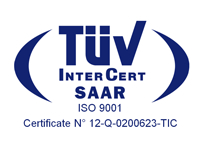Galileo, the EU satellite navigation programme (the European “GPS”) and Copernicus, the EU Earth monitoring programme, are in decisive phases this year.
European Commission Vice President Antonio Tajani, responsible for industry and entrepreneurship said: “I called this meeting to reinforce the dialogue between the key players in industry, the ESA and European Commission. The success of Galileo and Copernicus programmes depends on the commitment and support of the space industry and the ESA. Galileo will start its first operations in 2014. Copernicus is also entering the operational phase. Space and satellite navigation, created in Europe, are inputs for our strategy to reindustrialise the EU. Most importantly, they will open up new business opportunities that Europe needs”
With the launch of six additional Galileo satellites, Europeans will soon be able to enjoy their own satellite navigation system. The first Copernicus satellite launch in March will also enable considerable progress in improving maritime security, climate change monitoring and providing support in emergency and crisis situations. The progress in both European space programmes – Galileo and Copernicus – was announced by Vice President Antonio Tajani following a meeting with Jean Jacques Dordain, Director General of the European Space Agency (ESA) and the CEOs of five main companies involved: Arianespace, Telespazio, Thales Alenia Space, OHB and Airbus Space and Defence. As a result of the meeting, all five companies and the ESA expressed their strong commitment to the launch of additional satellites for the two space programmes in 2014, as communicated to Vice President Antonio Tajani by the Director General of the European Space Agency. This could allow initial Galileo services to be available, subject to finalising all technical issues, at the end of 2014/beginning of 2015.
Galileo and Copernicus – two programmes ensuring European technology leadership
Galileo and Copernicus are complementary systems making use of satellite technologies. Both systems have their strategic value as each of them has its own mission, which do not overlap. Galileo is essentially a ‘navigation’ system providing permanent and accurate positioning and timing services worldwide. Copernicus is an ‘Earth observation’ system providing information on the state of our environment and improving the security of our citizens.
Timetable for launches of Galileo and Copernicus satellites
Vice President Antonio Tajani confirmed the following two commitments made by the company CEOs and Mr Dordain:
- The schedule of the Galileo programme is robust according to the Director General of the European Space Agency. The first OHB-built satellites are on track and will be launched from Europe’s space port in French Guiana. Additional satellites will be ready later in the year. This means that initial Galileo services will be available at the end of 2014/beginning of 2015. All five companies and ESA are strongly committed to this planning.
- The deployment of the Copernicus space infrastructure will continue as scheduled. The launch of the first ever dedicated Copernicus satellite is planned for the end of March this year, from French Guiana. This satellite will contribute to maritime security, climate change monitoring and will provide support in emergency and crisis situations. The next two satellites will be ready for launch in 2015.
In addition, the budget for both programmes for the next seven years is secured. Almost €12 billion will be invested in space technologies. Vice President Tajani added: “It is my priority to make sure that this budget will multiply the benefits that European citizens will reap from our space programmes.”



